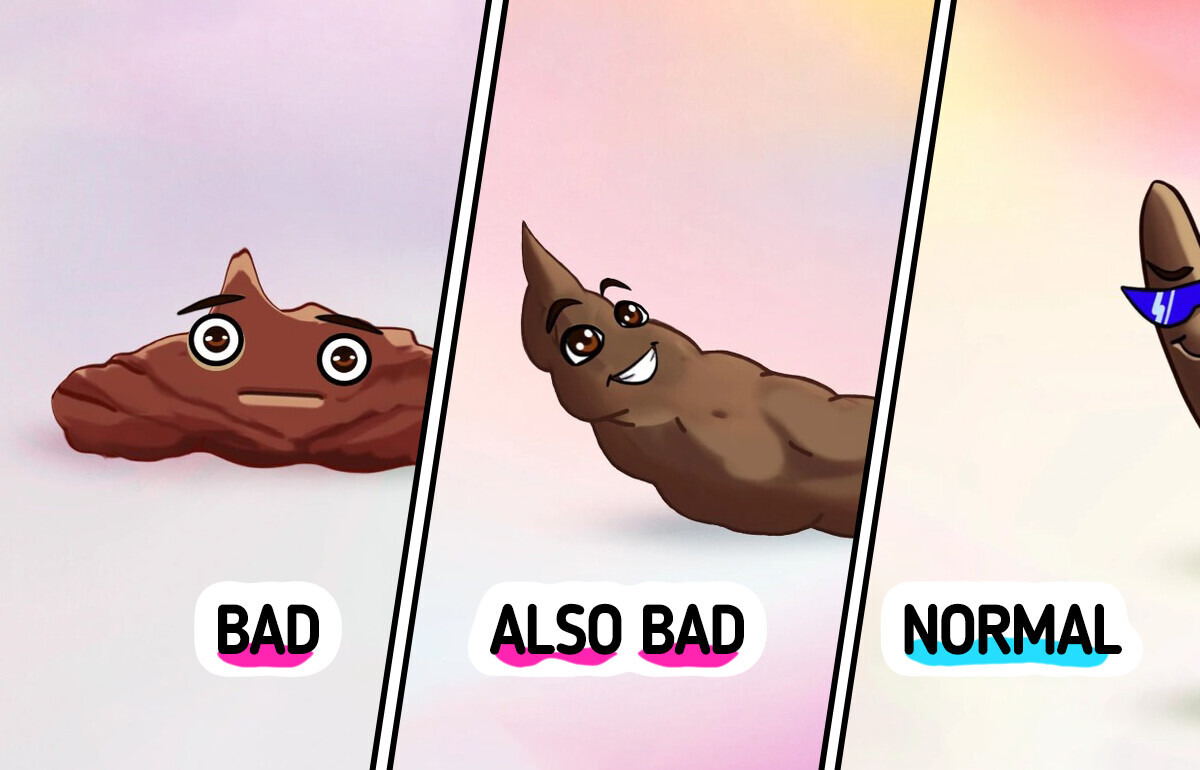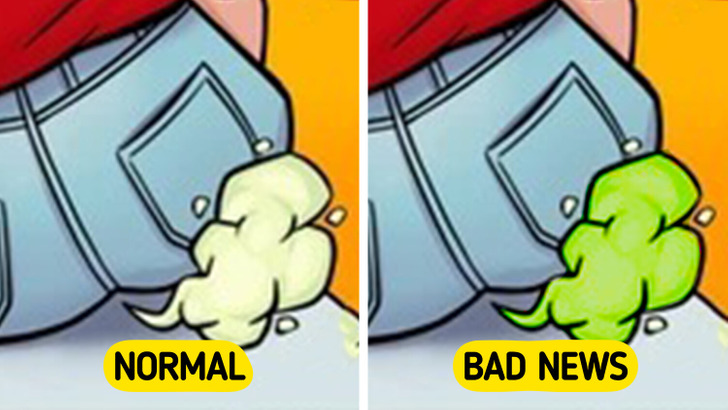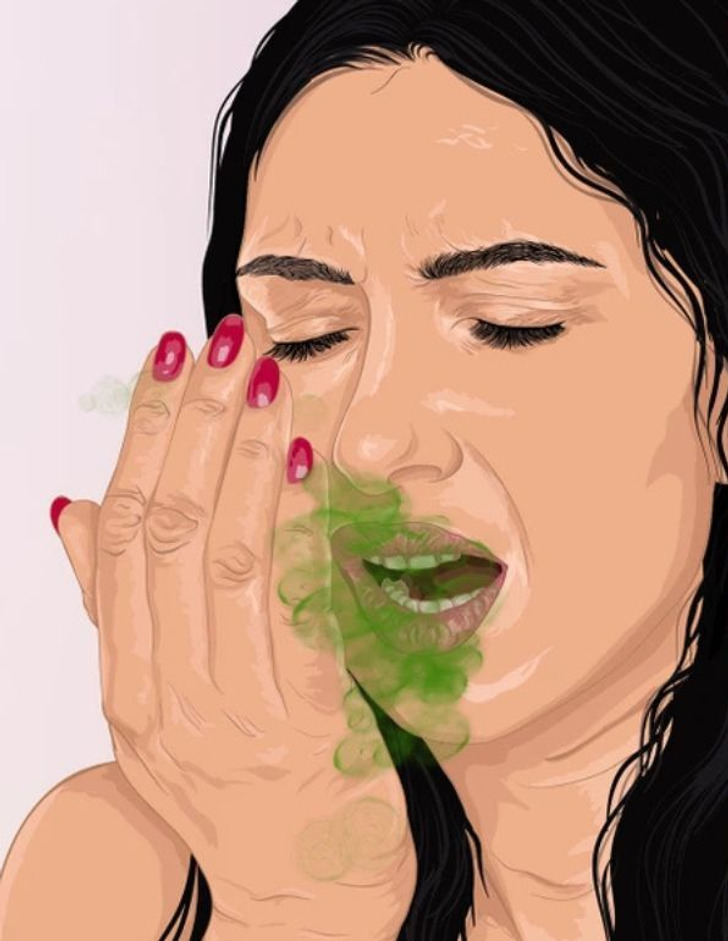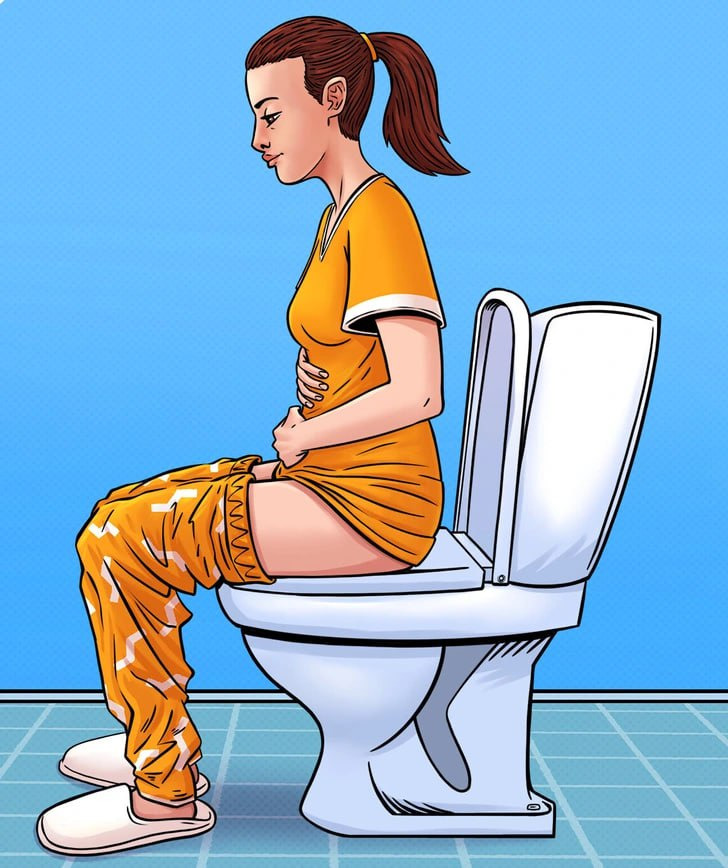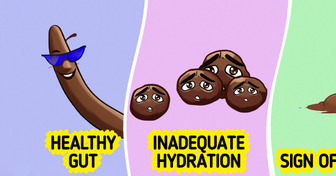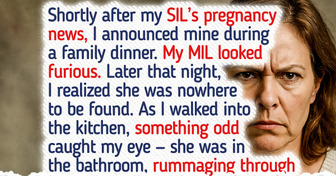Our gut does more than just digest food — it affects everything from our mood to our immune system. When something’s off, your body often tries to alert you with small, easy-to-miss signals. Paying attention to these early signs can help you catch imbalances before they turn into bigger issues. Here are 12 important ways your body might be telling you that your gut needs some support.
CONTENT IS PROVIDED FOR INFORMATIONAL PURPOSES ONLY AND IS NOT INTENDED AS A SUBSTITUTE OF MEDICAL ADVICE. SEEK GUIDANCE OF YOUR DOCTOR REGARDING YOUR HEALTH AND MEDICAL CONDITIONS.
Gas smells worse than usual
- Passing gas is a normal part of digestion, and most people do it around 13 to 21 times a day. Usually, it doesn’t have a strong odor. But if your gas smells especially bad, it could be a sign of something going on in your body. Common reasons include how your gut bacteria break down food, certain food intolerances (like lactose), constipation, or conditions such as celiac disease. If the smell becomes unusually strong or persistent, it might be worth checking in with a doctor.
Your stomach feels firm and bloated.
- If your abdomen feels unusually hard and swollen, it could be a warning sign of something serious, such as a blockage, hernia, or infection. When this firmness is accompanied by symptoms like cramping, loss of appetite, or difficulty passing gas, it’s important to seek medical attention right away.
You’re struggling to sleep without a clear reason.
You can’t stop craving sugar.
- The balance of bacteria in your gut plays a big role in controlling cravings. If you find yourself constantly craving sweets, it could mean harmful bacteria are outnumbering the healthy ones, contributing to inflammation and raising your risk for various health issues.
Feeling full quickly, even after small meals.
- If you’re feeling full faster than normal, it might indicate issues like GERD, ulcers, or a slow digestive system. In rare instances, early satiety can be associated with cancers such as ovarian, stomach, or pancreatic cancer.
- Poor digestion, constipation, and bowel disorders can contribute to bad breath that originates from the stomach. Acid reflux, a common symptom of gastroesophageal reflux disease (GERD), can cause stomach acids and the smell of recently eaten food to travel back up the esophagus into the mouth, resulting in unpleasant breath or halitosis.
Additionally, an imbalance between good and bad bacteria in the gut can lead to improper digestion, which may cause acid reflux, yeast overgrowth, or fermentation—factors that all contribute to foul-smelling breath. Addressing these digestive issues is key to managing bad breath that stems from the stomach.
You constantly feel bloated and uncomfortable.
- Does your stomach often feel tight or upset after eating? Regular bloating, gas, and cramping can be signs that your gut is having trouble breaking down food. If these symptoms occur frequently, they might point to issues like irritable bowel syndrome (IBS), food intolerances, or inflammatory conditions such as Crohn’s disease.
You notice blood — and it’s not from a nosebleed.
You’re experiencing sudden pain around your bellybutton.
- Unexpected pain near your bellybutton can signal several underlying issues, such as a urinary tract infection (UTI), appendicitis, or pelvic inflammatory disease. If the discomfort doesn’t go away, it’s important to see a doctor as soon as possible.
Blood after bathroom breaks: What it could mean.
- Noticing blood when you wipe? It could be something simple like hemorrhoids, or a more serious condition such as colitis, polyps, or even colon cancer. Don’t delay in getting it checked out.
Experiencing sudden upper belly pain? It might be a gallbladder attack.
- Sharp pain in the upper abdomen, particularly after eating, could indicate a gallstone blocking bile flow. If the pain is intense or accompanied by nausea and vomiting, seek emergency care immediately.
- Stools that are soft with fluffy bits are indicative of an early stage of diarrhea. This can occur when the colon expels stool rapidly, often due to sudden changes in diet, physical activity levels, or stressful situations. During such episodes, it can be challenging to control the urgency or timing of bowel movements. When the body experiences stress or is not accustomed to a healthy diet and lifestyle, stools may pass through the intestines at an accelerated pace.
- As a result, they may not undergo proper processing, leading to the presence of unabsorbed water and nutrients in the stool. It is important to address the underlying factors causing the diarrhea, such as managing stress, gradually introducing dietary changes, and adopting a healthier lifestyle to promote regular and well-formed bowel movements. If diarrhea persists or worsens, seeking medical advice is advisable to identify any underlying conditions and receive appropriate treatment.
- If your stools appear sausage-shaped with surface cracks, it could be a sign of mild constipation resulting from a suboptimal diet or prolonged sitting. This type of stool is often associated with functional constipation, which is typically caused by dietary or lifestyle factors. It may indicate that the stool has spent approximately seven days in the bowel before being expelled.
- To alleviate mild constipation, it is advisable to improve your diet by increasing fiber intake and staying adequately hydrated. Engaging in regular physical activity and avoiding prolonged periods of sitting can also help promote healthy bowel movements. If symptoms persist or worsen, seeking medical advice is recommended to rule out any underlying conditions and receive appropriate treatment.
- Healthy stools are usually cylindrical, sausage-like in shape, about the width of a banana, and between 4 to 8 inches. When flushed, they should keep their shape and have the right amount of water and nutrients. A consistency similar to soft ice cream is ideal. In addition, having a healthy, normal bowel system means having a bowel movement every one to three days.
A woman has shared the early warning signs that may help detect bowel (colorectal) cancer in its initial stages.

